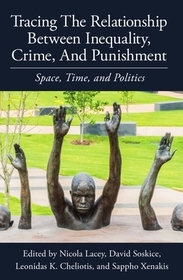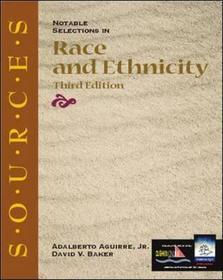
Tracing the Relationship between Inequality, Crime and Punishment
Space, Time and Politics
Sorozatcím: Proceedings of the British Academy; 234;
- Kiadói listaár GBP 95.00
-
45 386 Ft (43 225 Ft + 5% áfa)
Az ár azért becsült, mert a rendelés pillanatában nem lehet pontosan tudni, hogy a beérkezéskor milyen lesz a forint árfolyama az adott termék eredeti devizájához képest. Ha a forint romlana, kissé többet, ha javulna, kissé kevesebbet kell majd fizetnie.
45 386 Ft

Beszerezhetőség
Becsült beszerzési idő: A Prosperónál jelenleg nincsen raktáron, de a kiadónál igen. Beszerzés kb. 3-5 hét..
A Prosperónál jelenleg nincsen raktáron.
Why don't you give exact delivery time?
A beszerzés időigényét az eddigi tapasztalatokra alapozva adjuk meg. Azért becsült, mert a terméket külföldről hozzuk be, így a kiadó kiszolgálásának pillanatnyi gyorsaságától is függ. A megadottnál gyorsabb és lassabb szállítás is elképzelhető, de mindent megteszünk, hogy Ön a lehető leghamarabb jusson hozzá a termékhez.
A termék adatai:
- Kiadó The British Academy
- Megjelenés dátuma 2021. január 28.
- ISBN 9780197266922
- Kötéstípus Keménykötés
- Terjedelem370 oldal
- Méret 240x165x11 mm
- Súly 722 g
- Nyelv angol
- Illusztrációk 38 figures 141
Kategóriák
Rövid leírás:
This book develops an interdisciplinary analysis of the institutional, cultural and political-economic factors shaping crime and punishment so as better to understand whether, and if so how and why, social and economic inequality influences levels and types of crime and punishment, and conversely whether crime and punishment shape inequalities.
TöbbHosszú leírás:
The question of inequality has moved decisively to the top of the contemporary intellectual agenda. Going beyond Thomas Piketty's focus on wealth, increasing inequalities of various kinds, and their impact on social, political and economic life, now present themselves among the most urgent issues facing scholars in the humanities and the social sciences. Key among these is the relationship between inequality, crime and punishment. The propositions that social inequality shapes crime and punishment, and that crime and punishment themselves cause or exacerbate inequality, are conventional wisdom. Yet, paradoxically, they are also controversial.
In this volume, historians, criminologists, lawyers, sociologists and political scientists come together to try to solve this paradox by unpacking these relationships in different contexts. The causal mechanisms underlying these correlations call for investigation by means of a sustained programme of research bringing different disciplines to bear on the problem. This volume develops an interdisciplinary approach which builds on but goes beyond recent comparative and historical research on the institutional, cultural and political-economic factors shaping crime and punishment so as better to understand whether, and if so how and why, social and economic inequality influences levels and types of crime and punishment, and conversely whether crime and punishment shape inequalities.
Readers interested in understanding how existing inequalities correlate with a country's crime and punishment scenario will benefit from browsing this collection. Több
Tartalomjegyzék:
- List of Figures
- List of Tables
- Note on Contributors
- Acknowledgements
- Foreword
- 1: NICOLA LACEY AND DAVID SOSKICE: Tracing the Links between Crime, Punishment, and Inequality: a challenge for the social sciences
- 2: SUSANNE KARSTEDT: Inequality and Punishment: The Idiosyncrasies of the Political Economy of Punishment
- 3: NICOLA LACEY AND DAVID SOSKICE: American Exceptionalism in Inequality and Poverty: A (Tentative) Historical Explanation
- 4: SAPPHO XENAKIS AND LEONIDAS K. CHELIOTIS: The Violence of Inequality: Race and Lobbying in the Politics of Crime and Criminal Justice in the United States
- 5: MARIE GOTTSCHALK: Deplorable or Disposable? The Carceral State and 'Breaking Bad' in Rural America
- 6: LISA L. MILLER: American Exceptionalism or Exceptionalism of the Americas? The Politics of Lethal Violence, Punishment and Inequality
- 7: MANUEL ITURRALDE: The Political Economy of Punishment and the Penal State in Latin America
- 8: BRUCE WESTERN AND CATHERINE SIROIS: Social Environments of Pervasive Incarceration: Lessons from Australia's Top End
- 9: VANESSA BARKER: Punishing Inequality: Notes on Social Worth from Sweden
- 10: EMILY GRAY, PHIL MIKE JONES AND STEPHEN FARRALL: Housing Inequalities, Crime and the Criminal Justice System: The Shifting Context in England and Wales since the 1980s
- 11: ZELIA A. GALLO: From ideologies, to institutions to punishment: the importance of political ideologies to the political economy of punishment
- 12: DARIO MELOSSI: Prison, Subordination, Inequality: Again on a Marxist Perspective
- 13: LEONIDAS K. CHELIOTIS AND SAPPHO XENAKIS: Exploring the Relationship between Crime, Punishment and Inequality: Some Afterthoughts on Method
- 14: LUCIA ZEDNER: Afterword to Tracing the Relationship between and Inequality, Crime and Punishment: Space, Time and Politics
- Index





